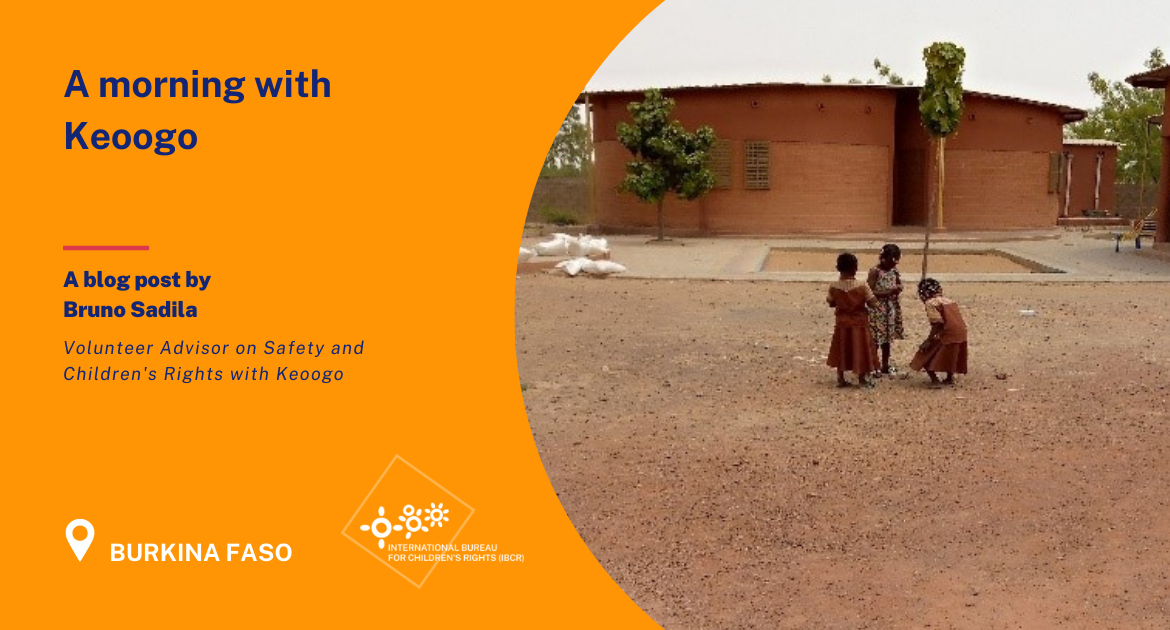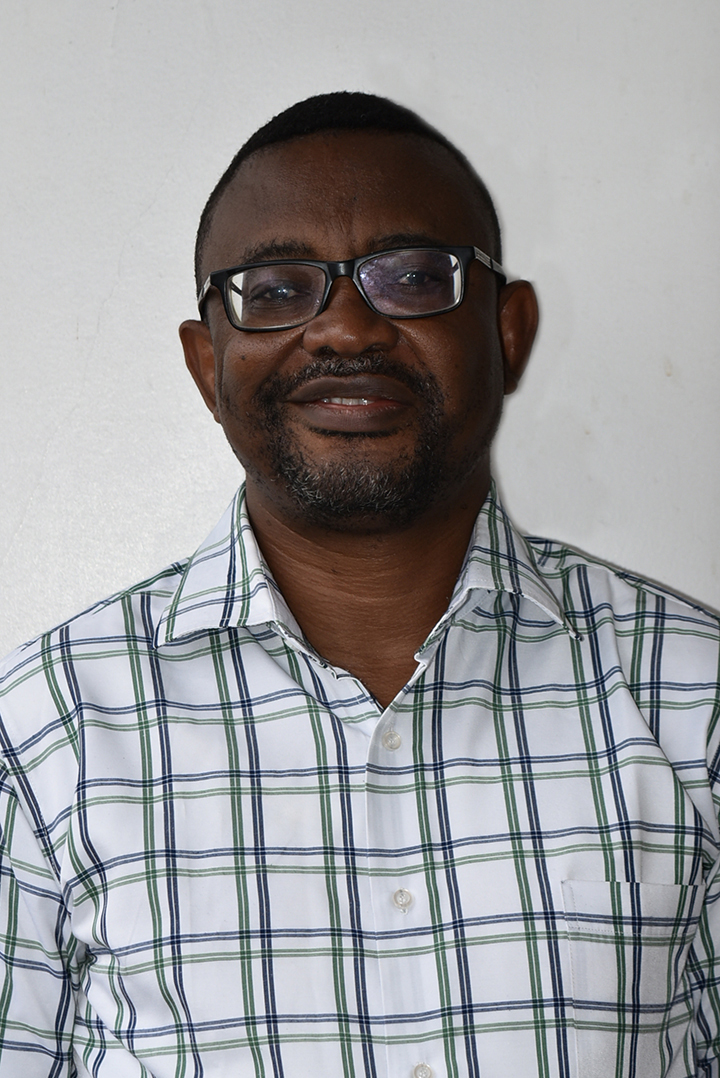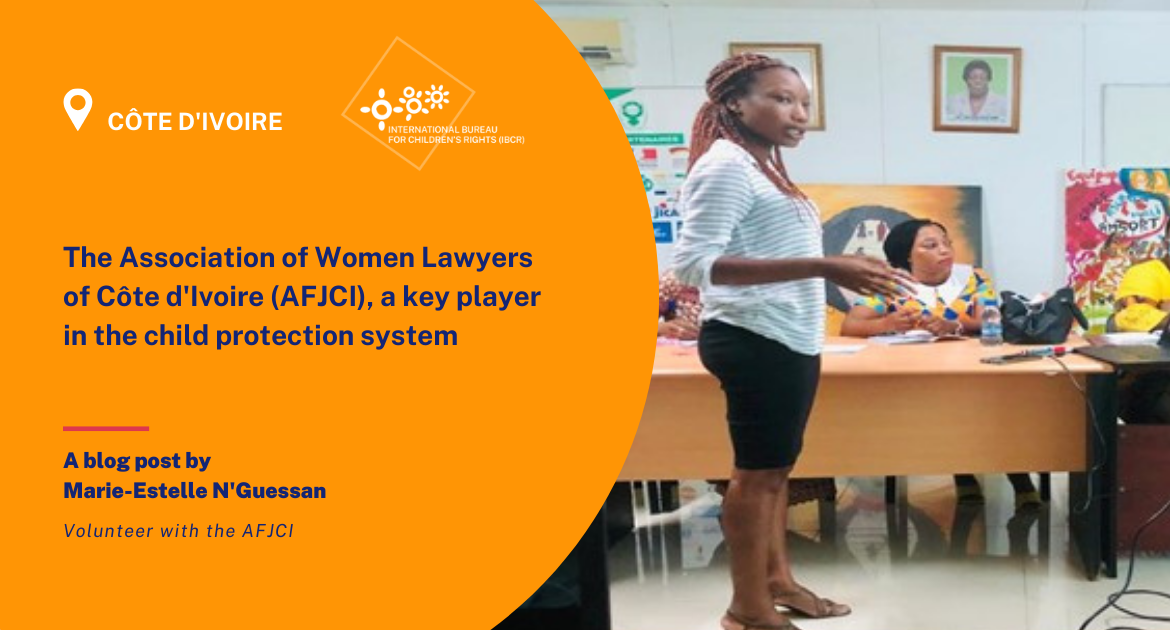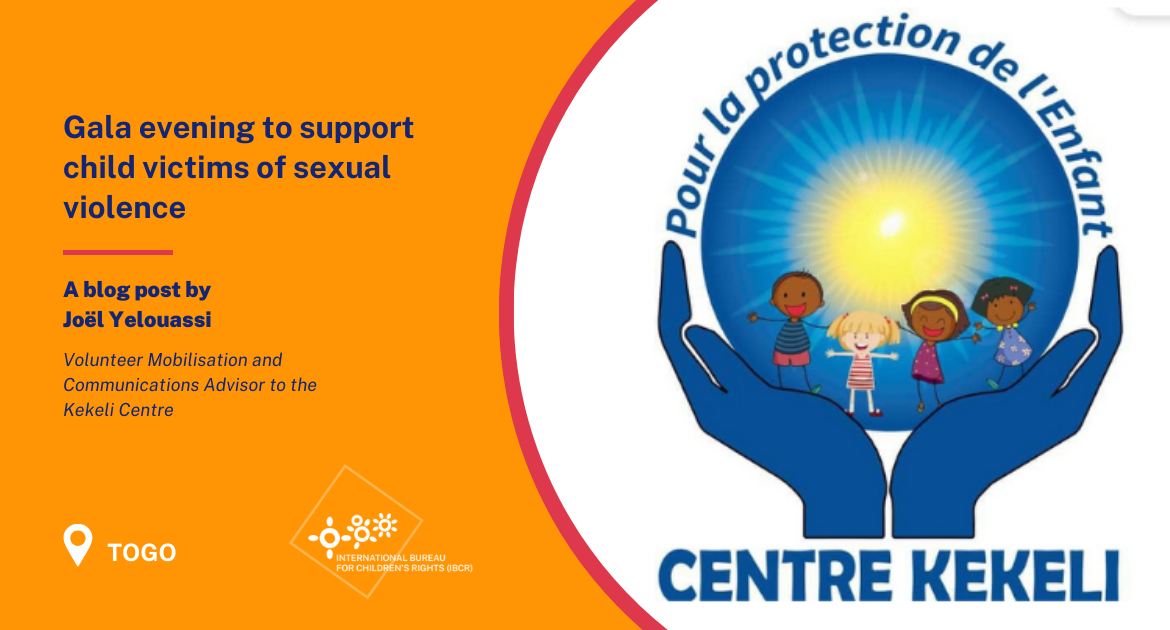On the 18 of March 2021, I had the privilege of taking part in a medical convoy, one of the key activities of Keoogo . it consists of going down to the sites where children and young people supported by the association live, to identify their needs, advise them, offer them medical follow-up and transport them to Keoogo's own health centre if necessary.
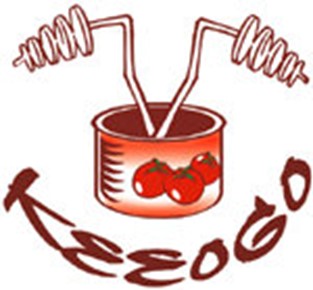
About Association Keoogo
Created in 2004, Keoogo is a Burkinabe organisation whose main mission is to offer protection and rehabilitation services to particularly vulnerable children in a holistic approach. The services offered to children and young people comprise of the following: family reintegration, medical care, psychological support, educational support, training and more generally emotional and relational support.
Keoogo’s target group is made up of children and young people, mainly living on the streets. These sometimes marginalised group generally live outside the official care and schooling circuits. They are exposed to higher risks of delinquency, trafficking, violence and prostitution, to difficulties in accessing health care, to HIV/AIDS in addition to other sexually transmitted infections (STIs), or to alcoholism or drugs, among others.
This morning I sat in the Keoogo vehicle with a psychologist and a "peer educator". The peer educator is a former street child or a vulnerable child who has able to find his place in society, and who is now commited to helping others in the situation by working with Keeogo. They play an important role in establishing and maintaining regular contact with street children and other margelinsed ones, as they know their codes and language. Moreover, their personal history enables children living in precarious conditions to aspire to a better future.
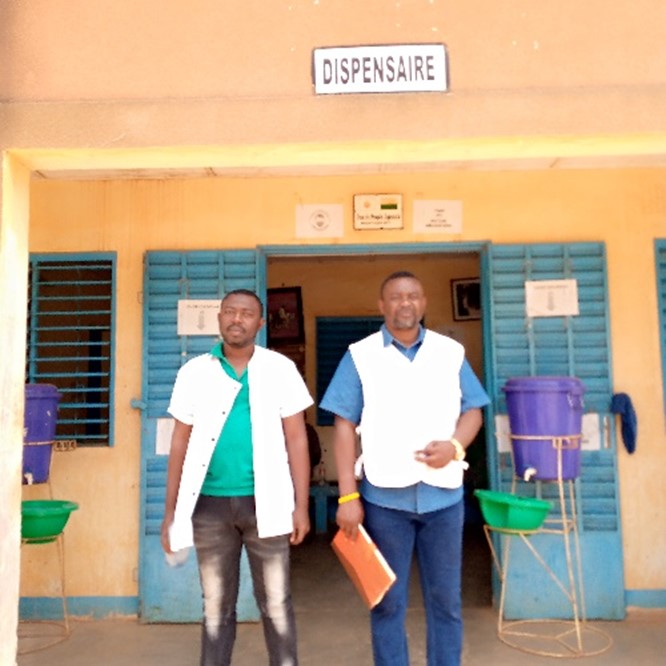
Bruno Sadila and a nurse from the centre in front of Keoogo's clinic
After five kilometres of driving, we find ourselves on the outskirts of Ouagadougou. The peer educator and the psychologist get out of the vehicle and enter a compound. It is a rallying point for the medical convoy. About ten minutes later, two young girls come out, one of whom turns out to be a minor. The younger one is carrying a one and a half year old baby. The two young women are Nigerian and speak English. 500 metres away, three other young women are picked up from another site. Two small boys are with them.
We head for the medical centre in Keoogo, about twenty kilometres north of Ouaga*. These girls and young people and their children receive medical care thanks to the association. In this centre, they are received warmly and without any stigma. They can receive free psychological support, care, contraception and pre- or post-natal check-ups according to their specific needs.
The medical centre is located next to the village Beoogo Tienbo, which literally means "hope for tomorrow". It houses a nursery, a nursery school, a centre for learning trades such as sewing and gardening, and dormitories with a capacity of around twenty people. The school is intended to receive children and young people from the surrounding area, with priority given to the girls and young women accompanied by the centre. In addition to the peer educators who run awareness-raising sessions and accompany the young people, there are also "mother educators". These are women of a certain age who, following the model of African customs, help and accompany these young girls and women, who are often unprepared to look after their children.
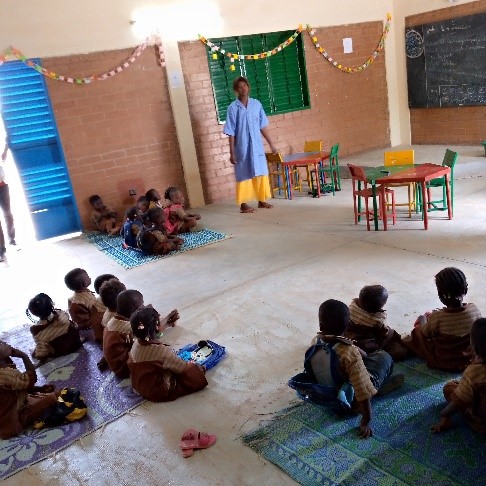
Keoogo's preschool
After nearly two hours in the village of Beoogo Tienbo, we set off to return the girls to their respective sites.
It was a day of learning. I particularly appreciated Keoogo's strategy and approach based on direct and close contact with the field. Children or young people who have come off the street are reintegrated into society and become resource persons to talk to children and young people who are now in a vulnerable or street situation. Throughout the project, I noticed how close these peer educators were to these young people.
I was also touched by the way in which the association helps these young people in vulnerable situations in their living environment, without making this help conditional on a placement in a closed environment. Indeed, there is a deep mutual respect, and no judgement is made. Although Keogoo would obviously like to reintegrate these children, nothing is imposed on them. On the contrary, everything is done in collaboration with them, both in terms of placement in appropriate centres and in terms of support according to their needs.
Finally, it is worth noting that the cultural roots are reflected in the raison d'être of the Keoogo association, whose name means "initiation centre". Following the example of traditional African customs, the centre is conceived as a village where the elders guide the youngest and teach them trades, thus enabling them to see a better future!
Bravo Keoogo.
*Nickname given to the city of Ouagadougou
Are you interested in volunteering ?
Find out more about our open mandates
KEEP ME INFORMED OF UPCOMING VOLUNTEERING OPPORTUNITIES
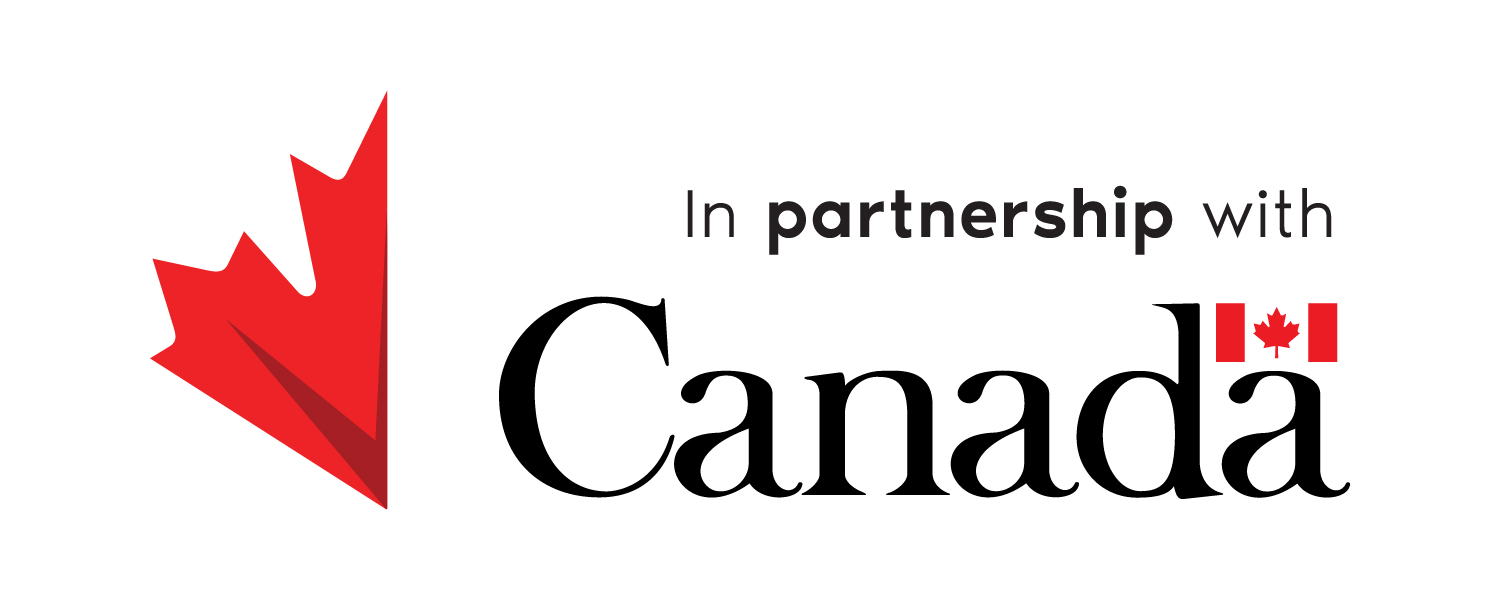
Volunteer cooperation program funded by Global Affairs Canada.






